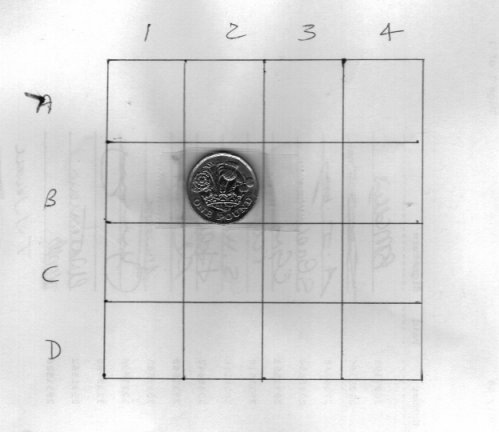Leaderboard
Popular Content
Showing content with the highest reputation on 02/21/22 in all areas
-
I once worked at an island environmental resort where there were many spiders and we would be called to remove them from rooms quite frequently. It would take me less than a minute if it was in plain view, the bigger the better. The best way to capture them is to: (1) get a clear lightweight wastepaper basket sized plastic bag. (2) turn the bag inside out by grabbing the bottom and pushing the rest of the bag around/over your hand. (3) make a small dip inside the bag with your fingers then quickly place the bag/dip over the spider on the wall. (4) slowly move your fingers in to get the spider to move into the dip and off the wall. (5) pinch the plastic bag to trap the spider inside it before removing it from the wall. I you ever have to remove a spider from your skin flick it off with your finger or a stick as more infections occur when you smash bits of spider leg through your skin by swatting them with your hand.2 points
-
Been done already. Better. And the dismissive language and facile generalizations don't make this a very strong exposition.1 point
-
Hahahahahaha i will update you for sure in case we got it wrong. Thank you so much for your time and your explanation ❤️ Have a nice day1 point
-
I'm confused by this, Torture, in the context we are talking about, would be used in an attempt to gain information that may lead to saving lives. It will either work or it won't. If it works great, you may be in a better position to save lives. If it fails the lives are doomed. If you don't try using all means at your disposal, the lives are doomed The person being tortured will either respond with the truth, or at least some useful information. Or they will say anything just to stop the torture. Or, if they are really tough/insane, keep quite and possibly lose their life. No one is arguing this, no one is saying that torture will work. The argument is that it might, even with the smallest of chances. So are the counter arguments. They claim that torture will never work and is absolutely pointless and immoral in all circumstances. Going back to the OP Is torture ever right? I'm sticking with yes, if the person being tortured has requested it for pleasurable purposes. The OP stated in the initial post to ignore the legalities and assume that the perp is guilty, where you find yourself in a situation with only 2 choices left - torture or not. I took this as meaning to focus on the question of morality of those choices, rather than the implications of trial, justice and punishment. The moral justification of using torture, considering all possible situations. The OP offered a scenario which may pull on a person's heart strings, since it appeals to parents in general, myself included. However you can take an objective approach and still conclude the same moral standing. Simply take the scenario, consider the options and implications, and then go with the most logical route in an attempt to gain a successful result. Whether the desired result is achieved is irrelevant to the moral implications of the action taken; unless the desired result is always unachievable, in which case it is not the most logical route to take.1 point
-
I think what the (so far, confusing) storyline might be, is that Baez conjectured whether a theory is like an algorithm, and an experiment is like a path or trajectory through an (abstract) machine. I guess I've picked up the baton, here. In any experiment, what can you write down that is representative of the state of a system (of, yknow, particles), and then what do you do with the recorded information? Just to throw a spanner in, what if someone else steals your notes and burns them, they're a pile of ashes now? (The machine has run an unexpected information-bearing algorithm). I'll add the observation that Kirchoff's laws are based on ideal elements, they say nothing about temperature. An ideal resistor has a fixed resistance, a real physical resistor has a resistance that depends on temperature. The trick is to restrict the ambient temperature by actively or passively cooling the physics down. So is there something like a "Kirchoff's algorithm" for chemistry? If you can define an abstract machine and paths through it, and algorithms, well, maybe.1 point
-
In the case you propose, entropy decreases in every step. 0) Initial entropy \[ 16\times\left(-\frac{1}{16}\log_{2}\frac{1}{16}\right)=\log_{2}2^{4}=4 \] 1) It's not in the first column (12 possibilities, assume equiprobable): \[ 4\times\left(-0\log_{2}0\right)+12\times\left(-\frac{1}{12}\log_{2}\frac{1}{12}\right)=\log_{2}12=\log_{2}4+\log_{2}3=2+\log_{2}3<4 \] 2) It's in the second column (4 possibilities, assume equiprobable): \[ 4\times\left(-\frac{1}{4}\log_{2}\frac{1}{4}\right)=\log_{2}4=2<2+\log_{2}3 \] 3) It's not in the first row (3 possibilities, assume equiprobable): \[ 3\times\left(-\frac{1}{3}\log_{2}\frac{1}{3}\right)=\log_{2}3<2+\log_{2}3 \] 4) It's in the second row (1 possibility, entropy is zero): \[ -1\log_{2}1=0<\log_{2}3 \] Entropy has decreased in every step, and there's nothing wrong with it. I'll think about this in more detail later. I think I see your point about the RAM circuit, and it reminds me of a question that somebody posed about Landauer's principle years ago. Very interesting! But I would have to go back to mentioned thread. One thing I can tell you for sure: You will have to increase the universe's entropy if you want to know where the coin is. There's no way around it: You have to look at the coins; for that you need light, and in focusing your light you will have to set some machinery in motion that will disturb the environment more than you order your system. So Shannon and Boltzmann are joined at the hip.1 point
-
OK, thanks for the replies. Here is my process example for idscussion. I have a 4 x 4 square board as in the diagram. On one square I have placed a coin but you cannot see it (you can see the one in the diagram for the purposes of explanation) In order to 'win' the coin you ask questions that may only be answered yes or no, represented by 1 (yes) and 0 (no) When you think you have determined the position of the coin you represent the answers to your questions by a string of ones and zeros. Using the example Is it in the first column? - No Is it in the second column? - Yes Is it in the first row? - No Is it in the second row? - Yes represented as information by the string 0101 What happens to the information entropy at each stage of the Q&A ?1 point
-
Surely the processes that damp out waves involve energy conversion to heat, through fluid friction, and friction of the fluid against the walls of the containing vessel. If there were no such friction, and gravity were the only influence acting, the waves would continue to reverberate without diminution, wouldn't they? Just as a pendulum would continue to swing indefinitely if it were not for friction.1 point
-
Those can't be the only possible alternatives. Again, not the only available alternatives. When you set up false dichotomies, you get nonsensical results.1 point
-
1 point
-
Knock yourself out: https://www.scienceforums.net/search/?&q="free will"&search_and_or=or&search_in=titles&sortby=relevancy1 point
-
I think we just used to be students.1 point
-
Exactly. I don't know. If I did a bad thing to prevent a worse thing, and it turned out as I hoped, I could probably forgive myself. I don't think I'd ever stop wondering whether it was the best decision I could have made, second- and third-guessing, dreaming about the alternate outcomes that were narrowly avoided. At least, that's what has happened when I've chosen the lesser evil in some real-life situation. I suspect it would be like that for most people who are not accustomed to making life-and-death decisions. Living with a guilt is not the same as being at peace with it.1 point
-
I respect life on all levels, and to me that means avoiding unnecessary killing. Insects can pose specific problems, and I'd have no qualms fumigating or getting rid of true pests, but if there's no need to kill those bugs, I don't do it. I especially wouldn't kill something to impress a person. That seems like animal behavior, something I try to rise above. I remember doing dumb things to impress women, but eventually I learned to appreciate the ones who liked learning about bugs rather than the ones who wanted me to kill them. I'm living right now with several bull snakes on the property. They're fascinating creatures, and we rarely see them when we're outside, but occasionally one gets startled and goes on defense. It hasn't happened to me yet, and it will probably scare the wee out of me (they emulate a rattlesnake when threatened, making their head flatter and hissing like a rattle). I'm OK with the occasional scare, but if one of them actually bites (non-venomous), he's going to be relocated with airborne prejudice. There's a park behind me that could use an aggressive snake. I don't hunt. I haven't fished for decades, and I NEVER fished catch-and-release. I killed and ate the fish instead. For anyone who thinks the bugs they step on don't matter, I highly recommend David Attenborough's A Life on Our Planet. It's his witness statement to the effect that biodiversity is what makes the Earth so unique and valuable, and anything you're doing to harm that is a crime.1 point









